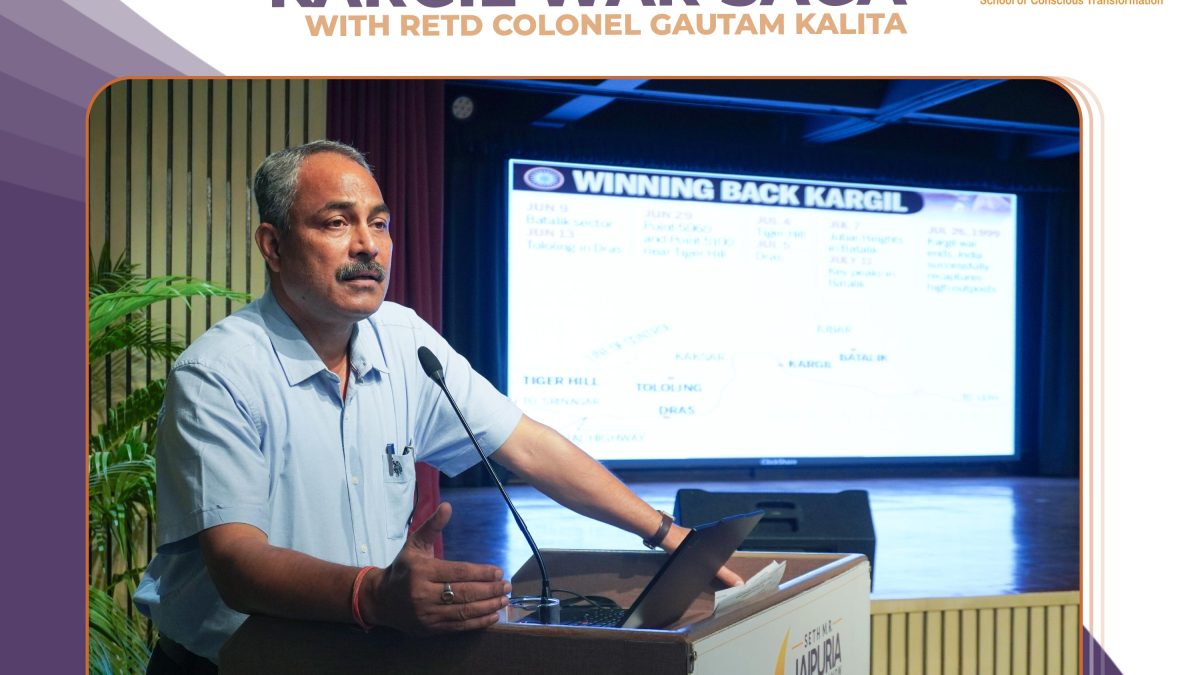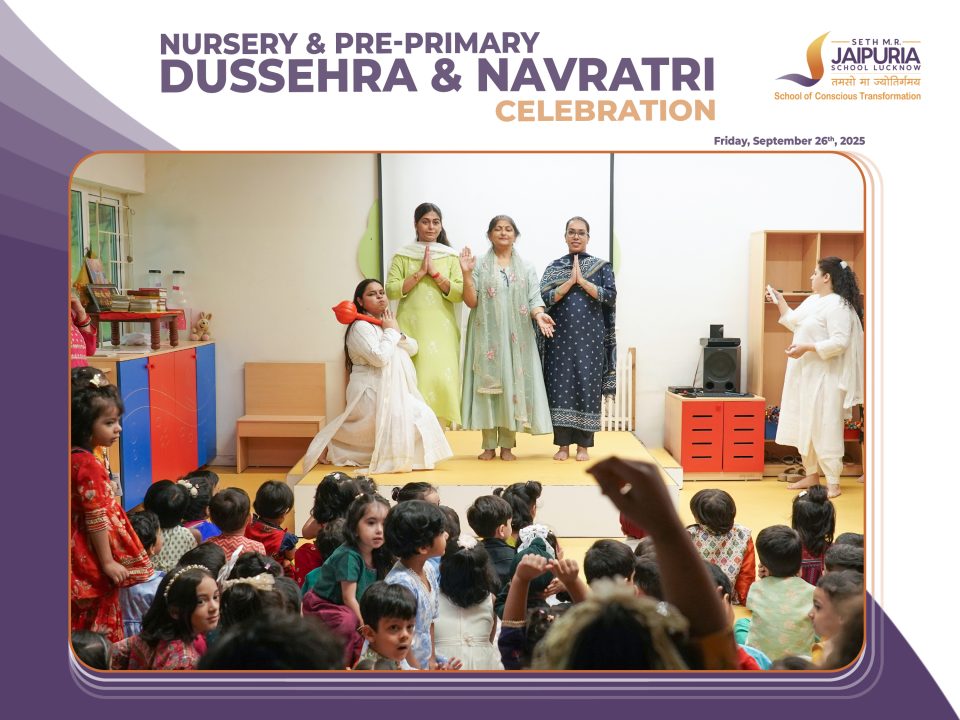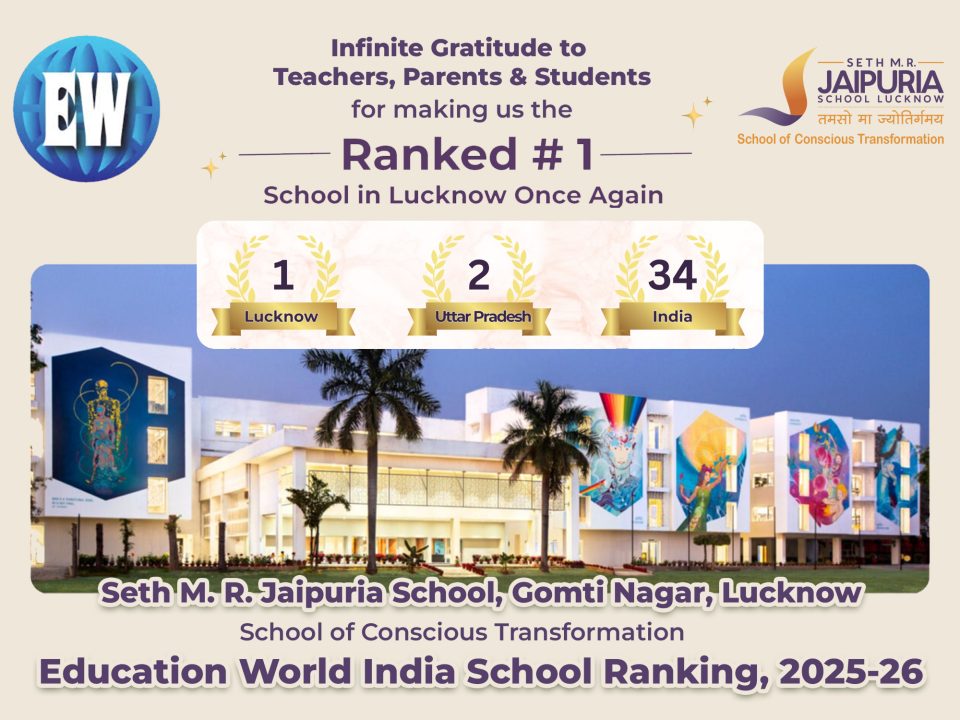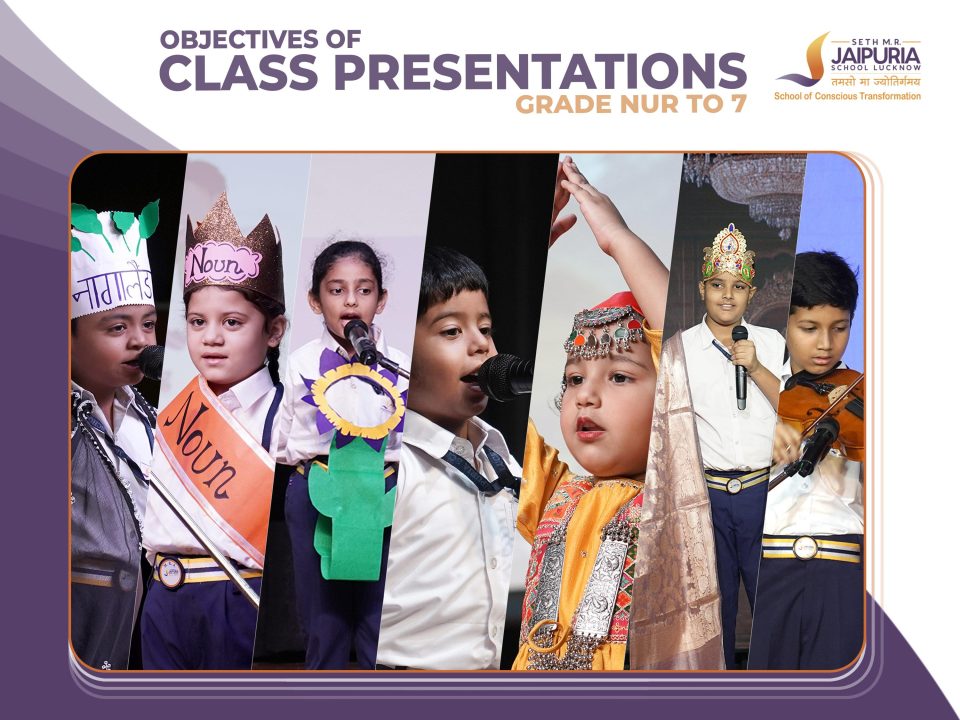
Little Voices, Big Triumphs: Seth M.R. Jaipuria School Shines at ‘Rhyme n Shine’!
September 25, 2025
Vishwakarma Puja 2025: Honouring Lord Vishwakarma with Reverence
September 26, 2025From defending India’s borders to shaping young minds, Colonel Gautam Kalita Sir’s journey embodies service to the nation. Recently, Jaipuria students experienced this firsthand during his special session on the Kargil War.
The distinguished veteran’s 33-year military career, spanning Siachen, Jammu and Kashmir, Ladakh, and the Northeast, earned him eight operational medals and three Chief of Army Staff commendations. An NDA and IMA alumnus commissioned in 1985, Colonel Kalita Sir retired in 2019 and now serves as Head of Administration at Seth M.R. Jaipuria School, Gomti Nagar.
“I’m not only a proud Indian Army veteran but also a proud army father because my son is also in the army and he is a pilot,” began Colonel Gautam Kalita Sir, addressing students in the school auditorium. He shared a photograph of his son, currently posted at Siachen Glacier, linking past and present service.
Before beginning his presentation, Colonel Kalita Sir engaged the students with a short quiz on the Kargil War. Questions about the location, year, Kargil Vijay Divas, and Captain Vikram Batra’s iconic “Yeh Dil Maange More” brought enthusiastic responses from the audience.
About Kargil’s terrain, Colonel Kalita Sir explained, “It is located in a high-altitude area ranging from 13,000 to 18,000 feet. It’s rugged terrain with steep slopes, rocky ridges, deep valleys, and no tree line. We actually, in army terms, call it a cold desert.”
The first signs of intrusion in Kargil, he said, came not from technology but from locals. “This was detected in May by shepherds called bakarwals who graze sheep there. One of them reported to the Indian Army that they had seen people on the ridge lines.”
Recalling personal loss, Colonel Kalita Sir said, “One of my course mates, Squadron Leader Ajay Ahuja, was shot down in the initial days of the war. He ejected, landed on the Pakistani side, was captured and killed.”
About Captain Manoj Kumar Pandey, he shared, “While clearing the third position, Captain Manoj was hit in the shoulder and legs. Undaunted, he led the assault on the fourth position, rallying his men and destroying it with a grenade. During this attack, he was fatally wounded.”
Colonel Kalita Sir shared the scale of the Kargil War: “About 30,000 Indian soldiers were deployed between May 10th and July 26th, nearly ten weeks of fighting. We lost 527 officers and men, and around 1,628 were wounded. Pakistan never declared its casualties, but estimates put their losses between 3,000 and 4,000. India won a resounding victory.”
He reminded students that behind every statistic was a young life cut short. “Those 527 soldiers who sacrificed their lives, most of them were in their early twenties. They died young out of love for the country, the army, and the regiments they served.”
Highlighting army values, he said, “We are a secular country and the army is also secular. We have Muslim brothers in the army. When Pakistani soldiers’ bodies were left behind, we buried them with proper Muslim rituals. The ethos is that we do not leave behind any dead or wounded.”
The session later opened up for Q&A round. Students’ questions showed they had absorbed more than just history. When a student asked about how winter positioning changed after Kargil, Colonel Kalita Sir replied, “After the war, we no longer vacate posts in winter. Ultra-modern bunkers have been built so soldiers can stay throughout the season.”
Another question about technology helped Colonel Kalita Sir bring the story to the present. “The biggest example is surgical strikes,” he said. “With drones and artificial intelligence, India has been able to hit buildings with precision even 300 km inside enemy territory.”
Colonel Kalita Sir concluded with a message that lingered in the hall, “My aim in this talk is to make you aware and understand that the freedom and secure environment you enjoy today are because of the sacrifices of so many. So much blood has been shed to keep us safe. That awareness itself is the greatest tribute to the fallen soldiers.”















